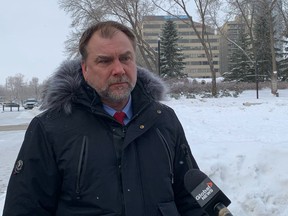Some 'refugees' have found a way to exploit Canada's generous immigration system

OTTAWA — Sudanese people crossing the border from the U.S. to make fraudulent refugee claims are like “a trail of ants” who view Canada as a “the picnic table.”
That’s the view of Mariam, a Sudanese-Canadian, who is affronted that her fellow citizens would abuse this country’s generous immigration system.
Few people get as upset about the manipulation of the citizenship process as those who have gone through it themselves and played by the rules.
Mariam (not her real name: she was granted anonymity to protect her from any recrimination) contacted the Post after a story last week revealed that a number of Canadian citizens being processed after evacuation from war-torn Sudan had previously been granted refugee status in Canada, yet had returned to the country they claimed had persecuted them.
In the wake of that evacuation, Ottawa introduced measures to allow immediate family members of those who left Sudan to be fast-tracked into Canada free of charge. Processing staff were “encouraged to be flexible” and “err on the side of facilitation” when dealing with applications.
Mariam said the new measures went viral — “it was like a bomb going off on social media” — as Sudanese expatriates around the world were misled by unscrupulous agents to believe that Canada had flung open its doors to all Sudanese citizens.
One Facebook influencer with 11,000 followers urged them to apply for Canadian citizenship, claiming all Sudanese citizens are eligible.
Ottawa has not helped itself. The portal accepting applications allows applicants to reach the point where they are permitted to submit biometric information, even though the form states clearly in English that eligibility is limited to spouses and dependent children. Immigration, Refugee and Citizenship Canada said it did not have statistics on how many new applications it has received.
But the likely upshot is that delays for legitimate applicants from Sudan have been extended.
Mariam said the war in her homeland has created genuine refugees but that many of those already in Canada claimed fraudulently that they were escaping persecution in Darfur, a region in western Sudan that has experienced ethnic conflict since 2003. In fact, she said many claimants were members of the party led by Omar al-Bashir, Sudan’s head of state between 1989 and 2019, who oversaw the war in Darfur and was accused of crimes against humanity there. He was deposed in a coup d’etat four years ago. “Many came here claiming to be opponents when they were really the oppressors,” Mariam said.
Canada has long been known as a soft target, with strong pull factors like generous benefits.
She contrasted that with the route travelled by permanent resident applicants, who have to take a language test, save as much as possible and then “wait forever,” unable to make plans for family, school or vacations.
Once in Canada, you “live a simple life and forget about credentials or jobs held before arriving in Canada.” But above all, you work. “I would rather sell my kidney than live on social benefits,” Mariam said.
Canada has retained support for mass immigration, largely because economic migrants remain the majority (if you include the dependents of the applicant in that category) and because it is generally considered to be fair. Canada admitted 260,000 immigrants in 2014, the last full year of the Harper government, a number that is expected to rise to 451,000 in 2024. The Conservatives kept the percentage of refugees below 10 per cent, while the Liberals have expanded that number to around 14 per cent.
Yet a broad consensus still exists, outside Quebec at least, that immigration is a good thing, as long as it is based on economics and fairness.
That integrity is undermined by stories like Mariam’s.
She said her experience of Canada’s system being milked is not limited to Sudanese nationals. As an Arabic speaker, she volunteered to help Syrian refugees settle in Canada. She said nine of the 25 families she worked with had not lived in Syria for many years and, consequently, were not genuine refugees.
But she said many Sudanese have figured out how to exploit the system, including returning to their home country by flying to Egypt or Ethiopia and crossing into Sudan over land. That information is shared on Facebook and What’s App groups.
She said such behaviour unfairly stigmatizes people like herself and her family.
“My father couldn’t find work in Canada, so he worked in the U.S., saved up and went back to school, while working as a security guard at night. My mother studied, even with five kids. When we came here, we followed the rules,” she said. “If you’re capable, contribute to your country and your community.”







